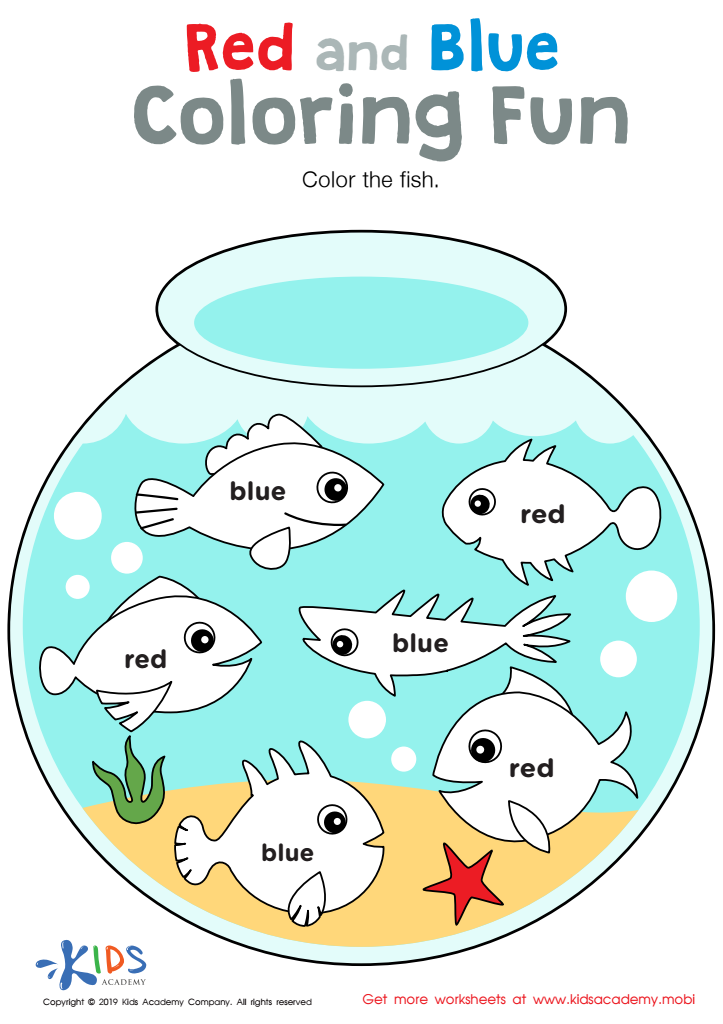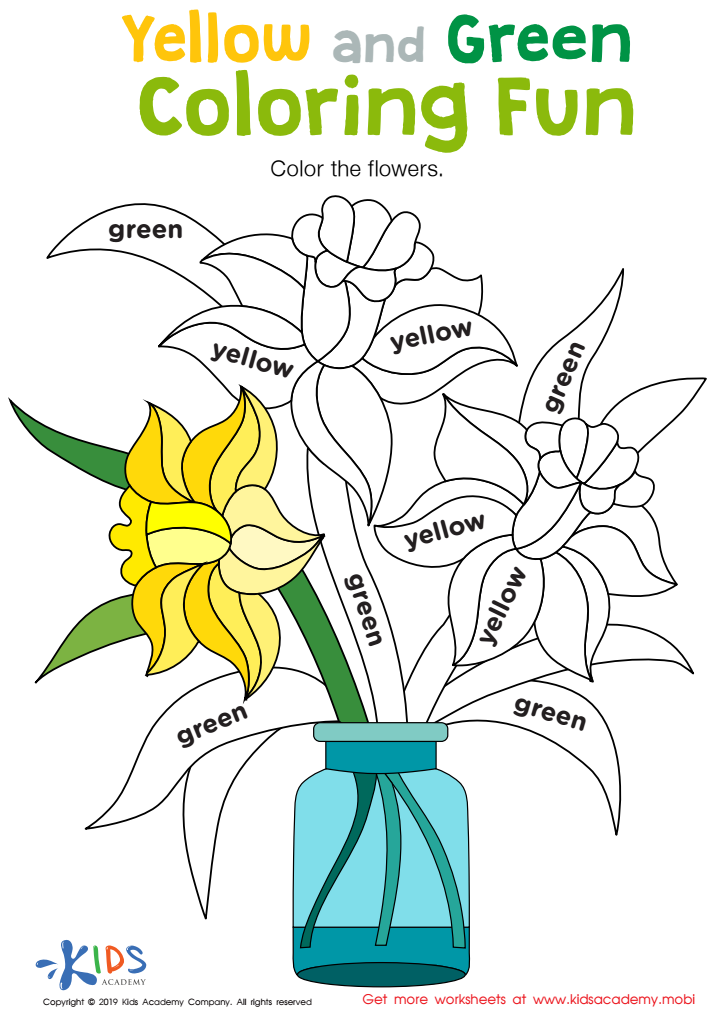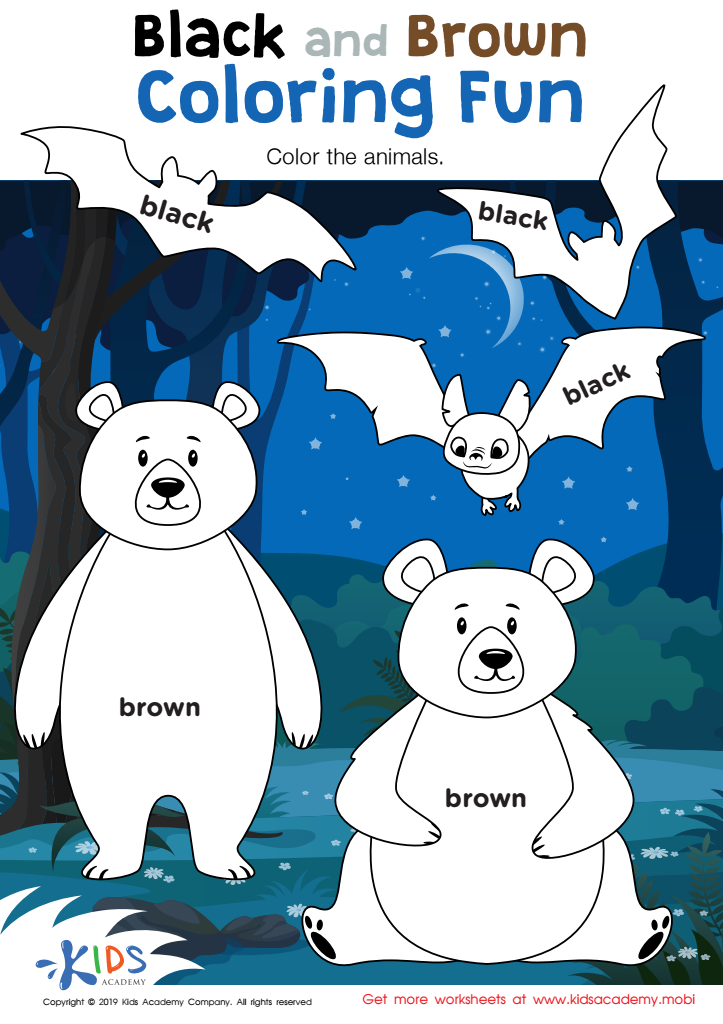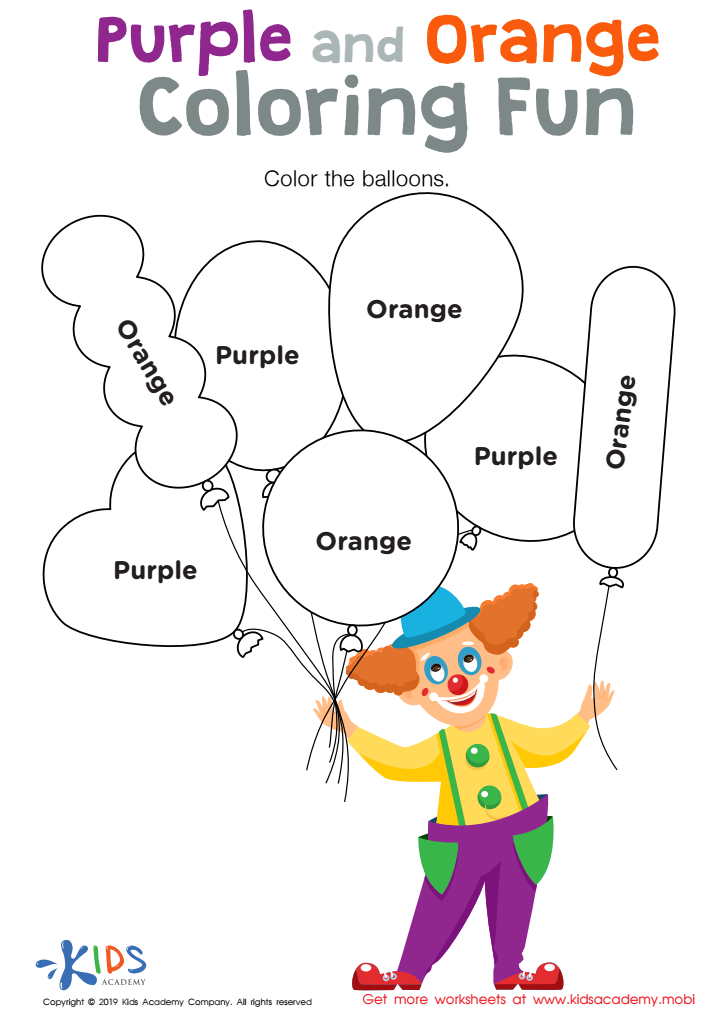Fine Motor Skills Color Words Worksheets for 9-Year-Olds
4 filtered results
-
From - To
Enhance your 9-year-old's fine motor skills with our engaging Color Words Worksheets! Tailored for young learners, these worksheets encourage practice with coloring, tracing, and writing color words, promoting both creativity and dexterity. Designed to bolster language development and hand-eye coordination, these resources facilitate early vocabulary acquisition in a fun, interactive way. Whether used in the classroom or at home, our worksheets provide a stimulating environment for learning essential color names while developing crucial motor skills. Give your child an advantage as they explore the colorful world around them through effective and enjoyable activities. Download your worksheets today and watch your child's skills flourish!


Red and Blue Coloring Fun Worksheet


Yellow and Green Coloring Fun Worksheet


Black and Brown Coloring Fun Worksheet


Purple and Orange Coloring Fun Worksheet
Fine motor skills are essential for a child's overall development, particularly for 9-year-olds who are refining their hand-eye coordination and dexterity. Mastering these skills enables children to perform everyday tasks like writing, coloring, and handling small objects with precision. Understanding color words is equally important; it enhances vocabulary and supports cognitive development, aiding in their ability to describe and categorize their world.
Parents and teachers should prioritize this combination because these skills significantly impact a child's academic success and confidence. Proficiency in fine motor skills allows students to express their creativity through art and enhance their writing ability, while a solid grasp of color words enriches their communication skills. It supports not only language arts but also various subjects like math, where color-coded information can make comprehension easier.
Additionally, strengthening these skills fosters independence and self-esteem. Activities that promote fine motor skills—like coloring within lines and cutting out shapes—engage children in fun yet educational ways. Together, fine motor skill development and a broad understanding of color words help children become more effective learners, laying the foundation for complex tasks in the future. Ultimately, parents and teachers play a critical role in guiding and encouraging these developments.

 Assign to My Students
Assign to My Students















